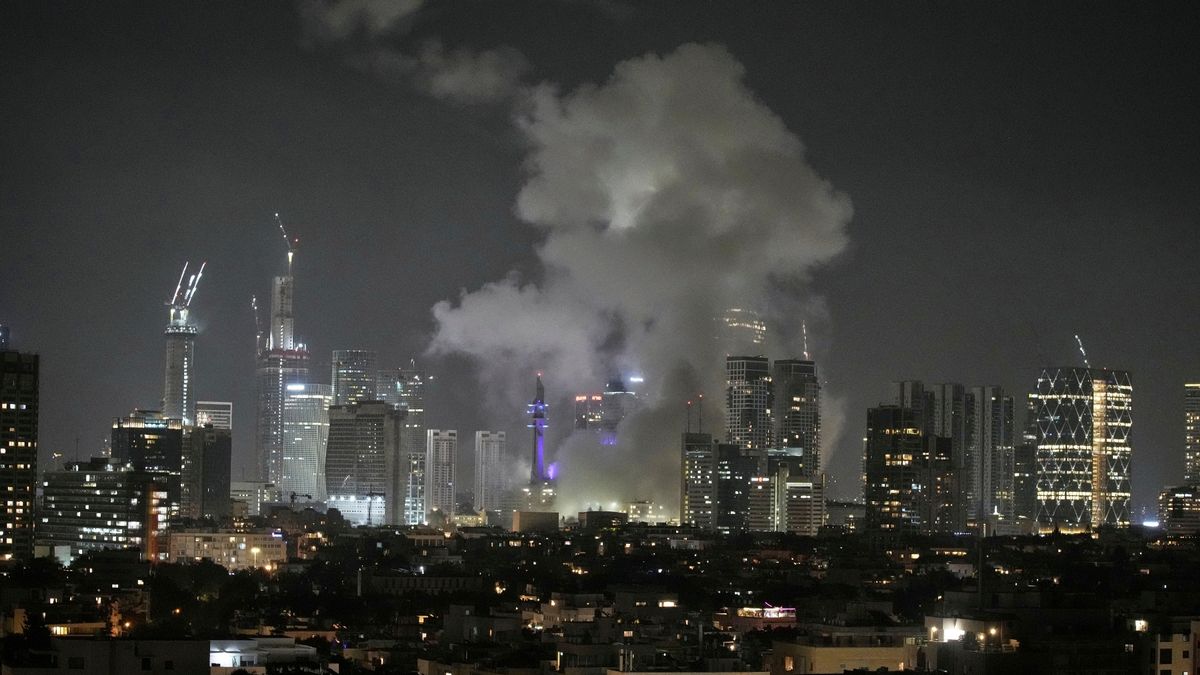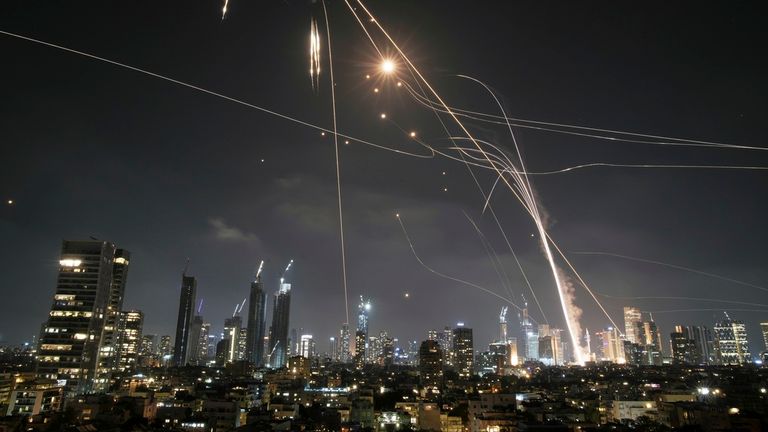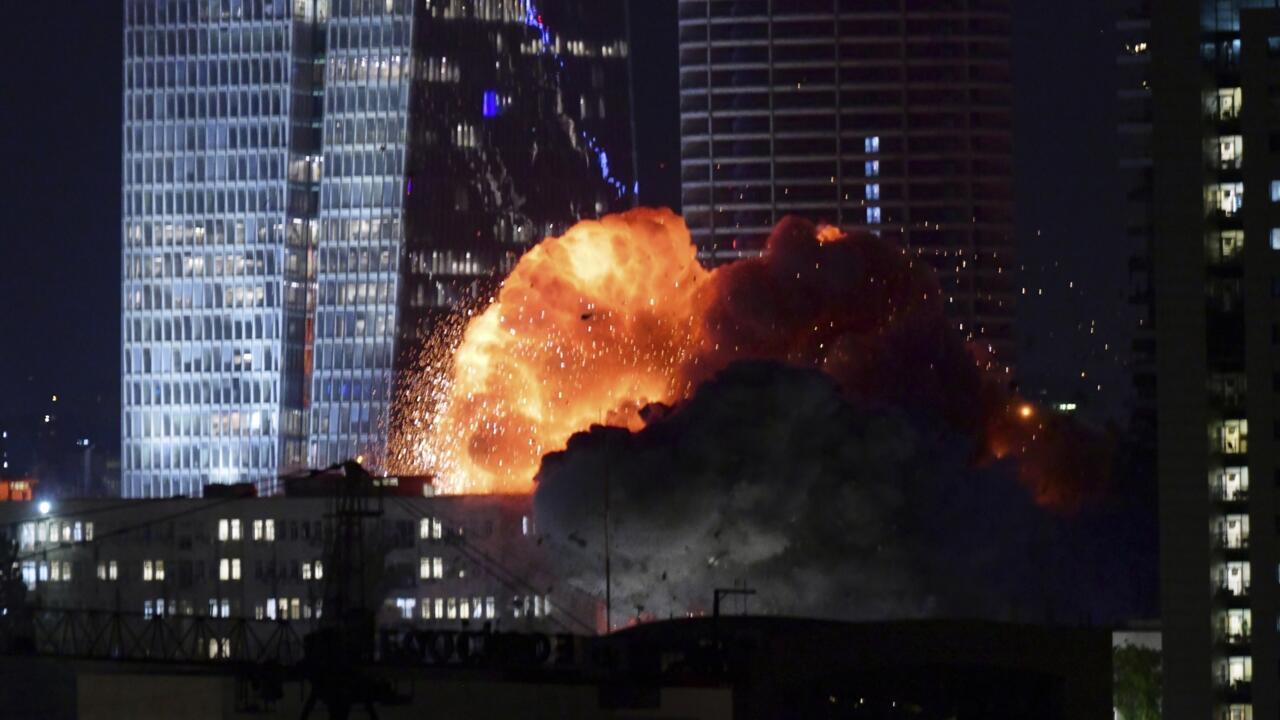Iran and Israeli tensions continue to reach a full breaking point. Iran launched a massive missile attack on Israel tonight in response to Israeli airstrikes that targeted Iranian military and nuclear sites yesterday. Meanwhile, Israel continues to carry out strikes inside Iran.
Explosions and plumes of smoke were seen over Tel Aviv and Jerusalem, with emergency services reporting at least 15 injuries and significant damage to buildings.
Sirens sounded across Israel, including in Tel Aviv and Jerusalem, warning citizens of incoming missile attacks. Live footage showed plumes of smoke rising over Tel Aviv after missiles hit several areas.
The Israeli military said its air defense systems intercepted many of the missiles, but some still caused damage. They warned people to stay in protected areas until further notice.

“So far we have struck more than 200 targets and we are continuing to strike,” Israeli military spokesman Brigadier General Effie Defrin told the press.
Iran's atomic energy agency said Friday there was limited damage to the Fordo nuclear site south of Tehran and another site in the country's centre after Israeli attacks.
"The damage was limited to areas that did not cause any urban damage in the case of Fordo... In Isfahan, there were also attacks on several points, which were related to warehouses that caught fire," said agency spokesman Behrouz Kamalvandi, adding that "the damage was not extensive and there is no cause for concern in terms of contamination".
Israeli Prime Minister Benjamin Netanyahu called on Iranians to unite against what he described as an "evil and oppressive regime", telling them Israel was engaged in "one of the greatest military operations in history".
"The time has come for the Iranian people to unite around its flag and its historic legacy, by standing up for your freedom from the evil and oppressive regime," Netanyahu said in a video statement after Israel struck over 200 military and nuclear sites in the Islamic republic.
"We are in the midst of one of the greatest military operations in history, Operation Rising Lion."
Netanyahu also released details of the operation, saying: "In the past 24 hours, we have taken out top military commanders, senior nuclear scientists, the Islamic regime's most significant enrichment facility and a large portion of its ballistic missile arsenal."
He added: "More is on the way. The regime does not know what hit them, or what will hit them. It has never been weaker.
Meanwhile, Israel's Defence Minister Israel Katz said that Iran crossed "red lines" Friday when its missiles targeted civilian areas after Israel launched a wave of attacks on the Islamic republic.
"Iran has crossed red lines by daring to fire missiles at civilian population centres in Israel," Katz said in a statement. "We will continue to defend the citizens of Israel and ensure that the Ayatollah regime pays a very heavy price for its heinous actions."
Following the interception of most of its first strikes, Iran has launched a new wave of missile attacks on Israel.
"A new round of Iranian missile attacks on the Zionist regime begins from Tehran and Kermanshah", a city in western Iran, state TV reported.
Iran's airspace will remain closed until Saturday, " The Civil Aviation Organization... has announced in aviation notices (NOTAM) that the country's airspace will be closed until tomorrow, Saturday," state media reports.
Meanwhile, the shutdowns of three busy airports in the Middle East is taking a toll. The turmoil didn't just affect flights to and from the Midwest but also affected some flights to and from Europe and other areas of the world.
The airports that shut down were in Israel, Iran, and Jordan. They each handle millions of passengers per year.
"Notice to the General Public. Due to the current special security situation, all flights to and from Ben Gurion Airport (LLBG) are canceled until further notice. Please be advised: Do not travel to the airport," the Tel Aviv airport in Israel wrote on its website on June 12 and 13.
Tehran’s Mehrabad Airport and Amman’s Queen Alia International Airport also closed on June 13.
Mehrabad "will remain closed until 2 p.m. on Saturday,", and Queen Alia International Airport didn’t say when it would reopen, advising passengers to contact their airlines.
The Amman airport is one of the busiest in the world, handling more than 9 million passengers in 2023 alone, according to Airport International Group.
From March 2024-2025, the Iran airport handled more than 13 million passengers.
Meanwhile, Iranian President Masoud Pezeshkian had pledged on Friday that Iran would deliver a "legitimate and powerful" response to Israel's airstrikes earlier in the day.
Pezeshkian said the Iranian people and officials would not remain silent in the face of Israel's "crime," adding Iran's response would make Israel "regret its foolish action."
He called for unity, trust, solidarity, and consensus among the Iranian nation more than ever, expressing confidence that the country's response to Israel would be "harsh, wise, and strong."

Chief of Staff of the Iranian Armed Forces Mohammad Bagheri, Chief Commander of Iran's Islamic Revolution Guards Corps (IRGC) Hossein Salami, Gholam-Ali Rashid, commander of Iran's Khatam al-Anbiya Central Headquarters, and Commander of the IRGC's Aerospace Division Amir Ali Hajizadeh were assassinated in the Israeli airstrikes on Tehran, the official news agency IRNA reported.
Following the attacks, Iranian Supreme Leader Ali Khamenei said Israel must wait for a harsh punishment for its "crime" against Iran.







